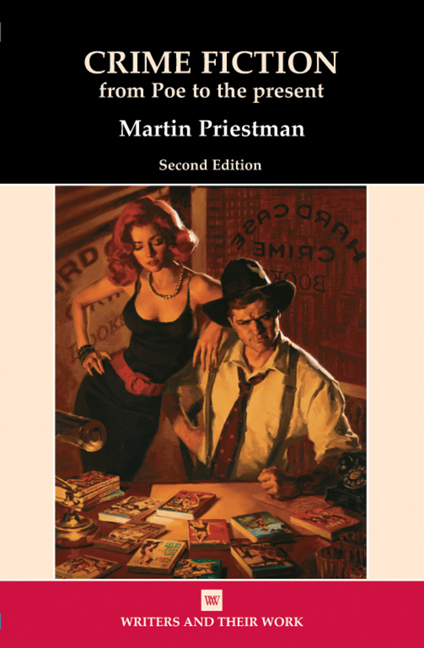Book contents
- Frontmatter
- Contents
- Acknowledgements
- A Chronology
- Introduction
- 1 The Detective Whodunnit from Poe to the First World War
- 2 The Detective Whodunnit from Christie to the Present
- 3 The Noir Thriller
- 4 The Hero-Thriller
- 5 Private Eyes: The Detective Thriller
- 6 Serial-killer Fiction and Other Developments
- Conclusion
- Notes
- Select Bibliography
- Index
4 - The Hero-Thriller
- Frontmatter
- Contents
- Acknowledgements
- A Chronology
- Introduction
- 1 The Detective Whodunnit from Poe to the First World War
- 2 The Detective Whodunnit from Christie to the Present
- 3 The Noir Thriller
- 4 The Hero-Thriller
- 5 Private Eyes: The Detective Thriller
- 6 Serial-killer Fiction and Other Developments
- Conclusion
- Notes
- Select Bibliography
- Index
Summary
To recapitulate: the thriller highlights danger within the present rather than (merely) the past action, hence its protagonists must be threatened by powerful forces of some kind. If these forces are seen as wicked and the protagonists as good, we are in the presence of a hero-thriller.
Narratives in which heroes and heroines confront powerful adversaries are, of course, as old as fiction itself, from epics such as The Odyssey to fairy tales and Arthurian romances. Taking up the story in the late eighteenth century, the gothic novel repeatedly pits a heroine and, sometimes, her admirer against a patriarchal villain whose panoply of servants and imprisoning buildings betokens a power which is made to feel systemic rather than merely individual. Some of the radical implications of this structure are made more explicit in ‘Jacobin novels’ of the 1790s, such as Mary Wollstonecraft 's unfinished Maria, or The Wrongs of Woman (1798), where the powers of patriarchy are symbolized in the madhouse to which the heroine is confined for attempting to escape from her miserable marriage. In the most influential such novel, William Godwin's Caleb Williams (1794), a somewhat similar attempt by the servant Caleb to escape from his employer Falkland, whom he has discovered to have committed a murder, leads to a powerful imagery whereby the whole of Britain becomes a ‘Bastille’, penetrated everywhere by the power of Falkland's gentry class and its spies and agents. Repeatedly imprisoned, dogged and defamed, Caleb finally brings his accusation to court, after which, in the published version, Falkland confesses and dies and the persecution ceases; though in an unpublished earlier version the claustrophobic atmosphere is sustained till the end, as Caleb dies raving in the prison cell to which he is returned after the failure of his case.
Because the early part of the book focuses closely on Caleb's gradual uncovering of his master's guilt – and perhaps also because Godwin's account of the novel 's ‘backwards’ construction, from dénouement to starting point, interested and may have influenced Poe – some critics, such as Julian Symons, have seen Caleb Williams as a major precursor of the detective genre.
- Type
- Chapter
- Information
- Crime Fictionfrom Poe to the present, pp. 43 - 51Publisher: Liverpool University PressPrint publication year: 2013

